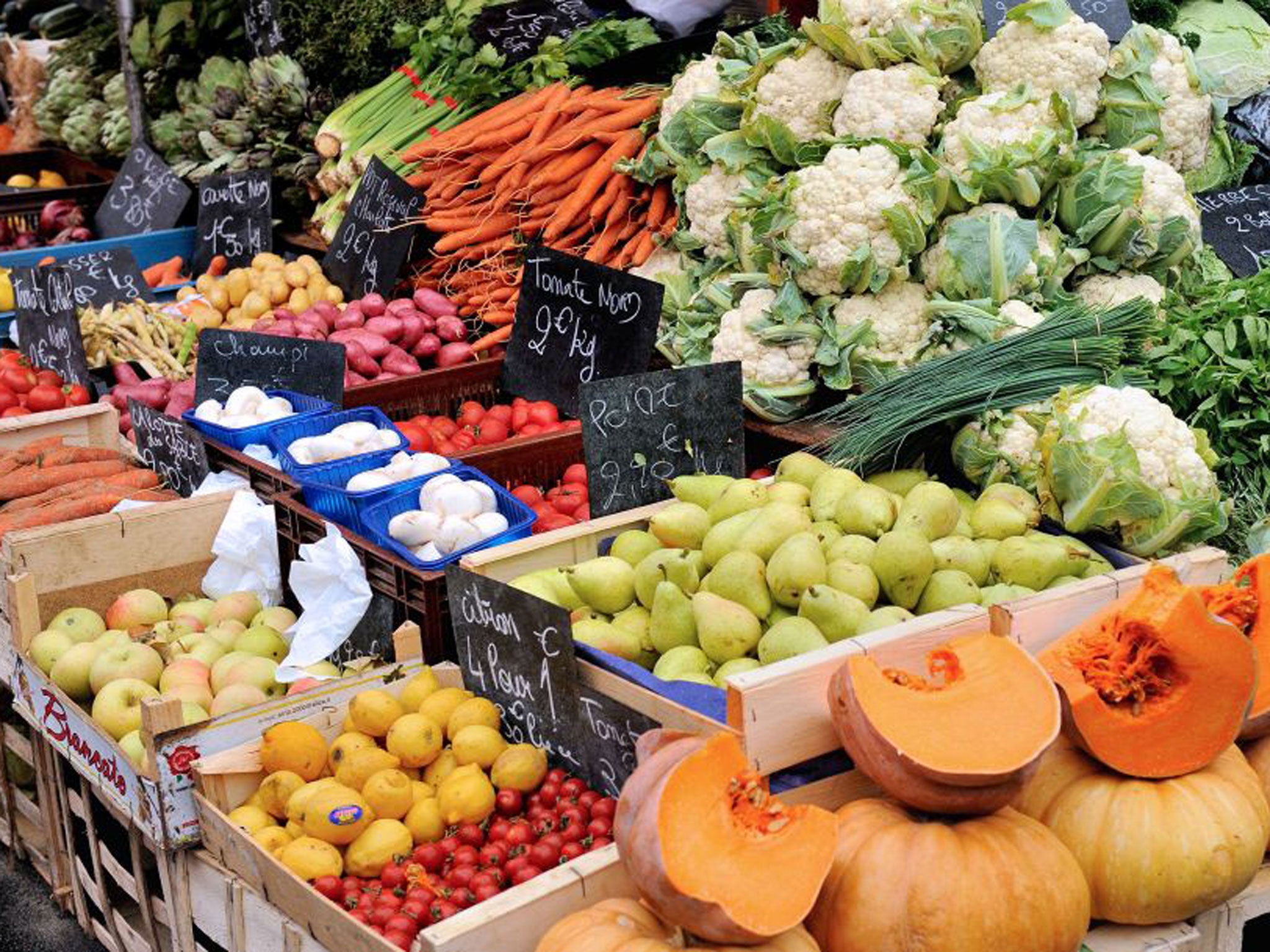Forget five a day: You need SEVEN portions of fresh fruit and veg per day to live longer, says new research

Your support helps us to tell the story
From reproductive rights to climate change to Big Tech, The Independent is on the ground when the story is developing. Whether it's investigating the financials of Elon Musk's pro-Trump PAC or producing our latest documentary, 'The A Word', which shines a light on the American women fighting for reproductive rights, we know how important it is to parse out the facts from the messaging.
At such a critical moment in US history, we need reporters on the ground. Your donation allows us to keep sending journalists to speak to both sides of the story.
The Independent is trusted by Americans across the entire political spectrum. And unlike many other quality news outlets, we choose not to lock Americans out of our reporting and analysis with paywalls. We believe quality journalism should be available to everyone, paid for by those who can afford it.
Your support makes all the difference.Eating seven or more portions of fruit and vegetables a day gives people a far greater chance of staving off an early death, according to a study published on Tuesday, which suggests that the Government’s official “five a day” recommendation should be doubled to 10.
Researchers found that eating seven fruit and vegetable helpings a day reduced a person’s risk of dying of cancer by 25 per cent and of heart disease by 31 per cent. But in a surprising finding, eating tinned and frozen fruit appeared to increase the risk.
Current NHS guidance, which is in turn based on advice from the UN’s World Health Organization, states that every person in Britain should try to have five different 80g portions of fruit and vegetables a day.
Examining the eating habits of 65,000 people in England between 2001 and 2013, the researchers from University College London (UCL) found that people who ate seven or more portions daily had a 42 per cent reduced risk of death overall compared to those who managed just one.
Fresh vegetables were found to have the strongest protective effect, followed by salad and then fruit. Overall, vegetables pack more of a protective punch than fruit, the authors said.
The study was published in the Journal of Epidemiology and Community Health. In an accompanying editorial, public health doctors from the University of Liverpool said the findings prompted the question: “Is it perhaps now time for the UK to update the ‘five a day’ message to ‘ 10 a day’?”
The doctors added that as a maximum recommended daily amount of fruit and vegetables “could not easily be defined”, the Government’s current five a day guide “might provide a false reassurance and risk complacency” among people who already ate that amount. “They need to aim higher,” they added.
“We all know that eating fruit and vegetables is healthy, but the size of the effect is staggering,” said the study’s lead author Dr Oyinlola Oyebode of UCL’s Department of Epidemiology and Public Health. “The clear message here is that the more fruit and vegetables you eat, the less likely you are to die at any age.”
The research suggested that vegetables are more effective at warding off an early death than fruit. Two to three daily portions of vegetables resulted in a 19 per cent lower risk of death among those studied, compared with 10 per cent for the equivalent amount of fruit.
In Australia, official health advice encourages people to eat two helpings of fruit and five portions of vegetables a day. The authors said their findings suggested that the “two plus five” diet was a sensible approach.
The most controversial finding was that tinned and frozen fruit increased a person’s risk of death by 17 per cent, which the authors suggested may be down to the high amounts of sugar contained in many brands, cancelling out the positive effect of the fruit itself.
“Most canned fruit contains high sugar levels and cheaper varieties are packed in syrup rather than fruit juice,” Dr Oyebode said. “The negative health impacts of the sugar may well outweigh any benefits.”
However, other scientists raised concerns about reading too much into the link because the researchers were not able to rule out other aggravating factors, such as poor access to fresh groceries or pre-existing health conditions.
Dr Gunter Kuhnle, a food scientist from the University of Reading, said: “It’s possible that eating tinned fruits are an indicator of high sugar intake, but it might also be a marker of poverty or lower socioeconomic class. As there is no data, it’s simply not possible to speculate.”
Join our commenting forum
Join thought-provoking conversations, follow other Independent readers and see their replies
Comments